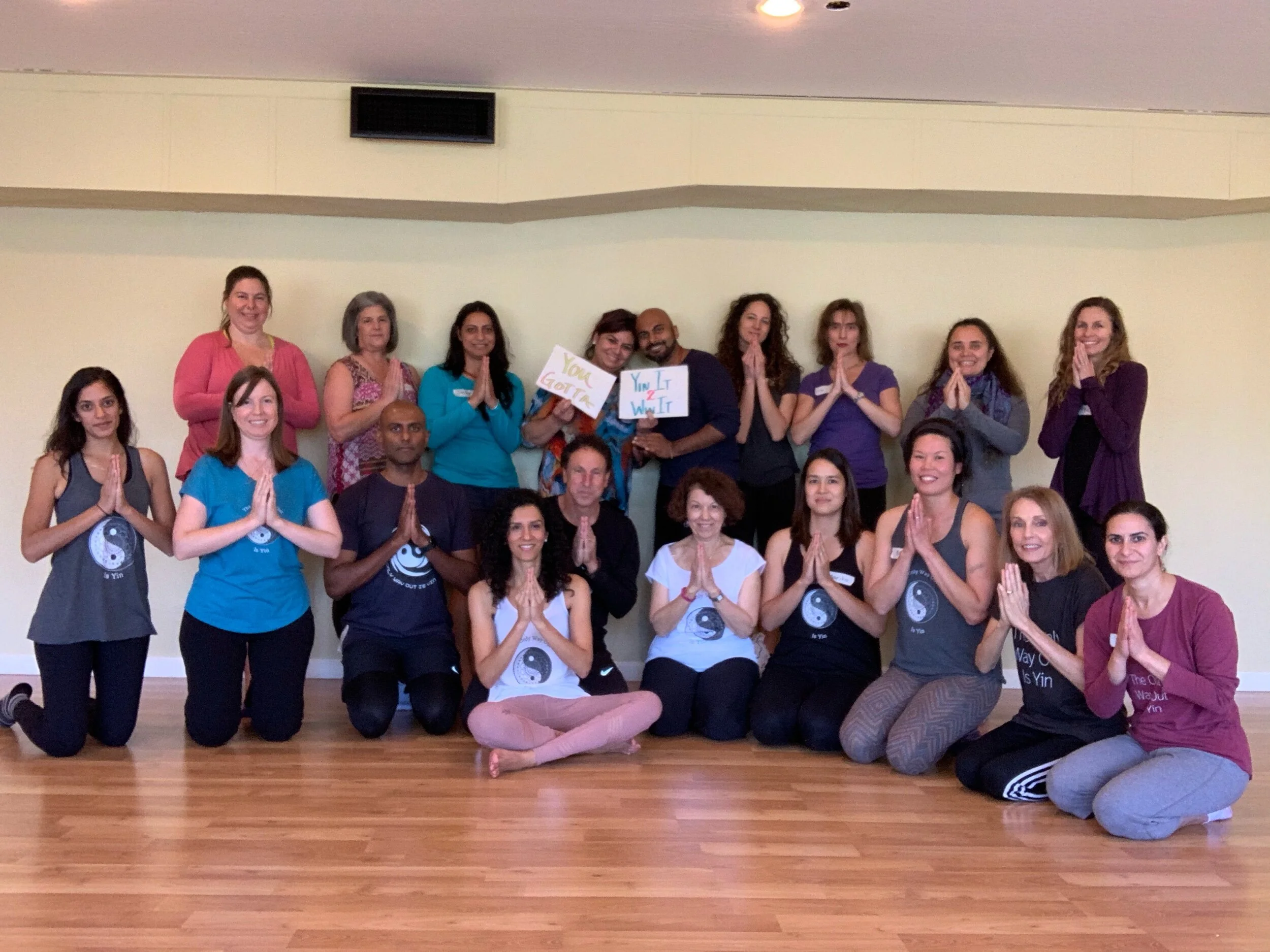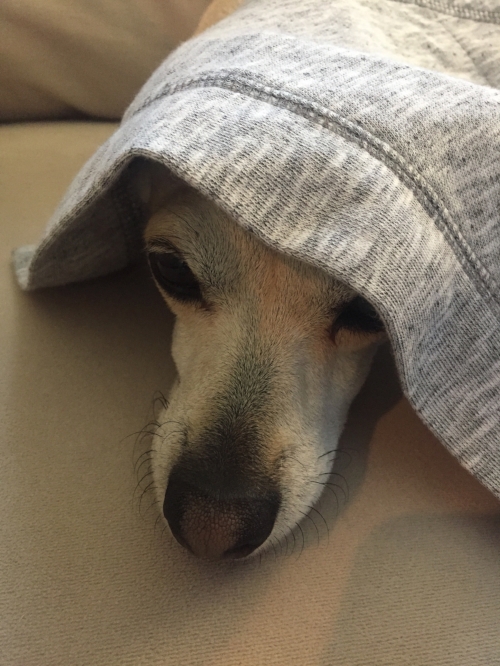by Setareh Moafi, Ph.D., L.Ac.
I realized this past week that yoga has been a part of my life for just about twenty years now. While that’s hard for me to believe, at this point I can’t imagine my life without it.
When I first started practicing yoga during my first year of college at UC Berkeley (after much resistance to get started), it changed my life. I went from an anxiety-ridden teen to a clear, focused and mindful young woman in what felt like no time at all. I became obsessed with the practice and even in the midst of a busy schedule with school and work, I somehow managed to fit in at least an hour of practice every day. (You can find the full story of how I found yoga in this article).
Nowadays, my practice takes on a different shape. On days that I have the luxury of practicing an hour or more, I feel blessed and sometimes even a little guilty. The days of practicing more active styles of yoga have shifted to focusing my practice on loosening my joints, relishing several minutes in one Yin Yoga posture and doing some Qi Gong and Tai Ji.
But one thing has stayed consistent for me over the past two decades — the days I practice are much better days than the ones I tell myself I don’t have time or distract myself with something else instead.
The days I show up on the mat, even when I’m exhausted or distracted or busy, help me connect to Source and deepen my relationship with myself. Honoring my practice is a way of honoring my body as the temple it is, and staying true to the commitments I make to myself, both on and off the mat.
Practicing and teaching yoga have taught me a myriad of important lessons. Here are just three of them:
Prioritize Your Self-Care
When you learn to really take care of and honor yourself, everything evolves from that space. We’ve created cliches on this topic for a reason — put the oxygen mask on yourself first before placing it on someone else. You can’t fill from an empty cup.
The only way you’re going to thrive as a practitioner, a healer, a friend, a parent, a teacher, or really anyone in any kind of relationship, is by taking care of yourself first.
No one wants to take food from a person who’s starving. Feed yourself, fill yourself. And you’ll be amazed at not only the quantity but more importantly the quality you’ll have available to share with others.
Self-care has probably been the hardest lesson for me to learn. Coming from a culture and family history of caretakers and role models who self-sacrificed, I learned that prioritizing yourself is selfish. Over time, I’ve come to realize that in some ways, selfishness is a virtue. Because all of the things we want to create are born out of the care we give ourselves.
Self-care involves daily practices to move your body and still your mind, proper nutrition and perhaps most importantly, setting clear boundaries (more on that here). And to me, self-care starts with how you start your day. A healthy morning ritual is essential to set the rhythm for your day and how you care for yourself throughout your life.
Be Consistent
Many of us struggle with a block called perfection. I’m definitely one of those people. When we start something new we think that we have to do it “right” or we just can’t do it.
We often demand so much of ourselves, forgetting that progress trumps perfection and starting something imperfectly is always better than waiting to do it right.
I used to think for example that daily practice meant waking up at 5am, practicing for 60-90 minutes, writing and meditating before going into the rest of my day. And to be honest, in my early 20s when I first started practicing yoga, I actually made time on most days to do all that. It sounds crazy now, but back then I simply didn’t have the responsibilities and distractions I have now.
So, for a long time, relenting to the fact that life is different now, I spent many days skipping practice thinking I simply didn’t have time. But when my body started aching and my sleep suffered, I realized that not practicing was not an option; that even if I could squeeze in 10 minutes every morning I felt dramatically better. And ironically, when I did practice, I felt less busy and overwhelmed.
Practicing gives my day a slower, more manageable pace and a sense of order. And by practice, I mean writing Morning Pages (3 long-hand pages of uncensored, unfiltered writing) and moving my body. Nowadays if I don’t complete the full 3 pages some days, I can forgive myself. And if I only get on my mat to warmup my body for 10 minutes, rather than beat myself up, I’ve learned to thank myself. Because something is better than nothing and skipping morning practice is no longer an option.
Ultimately the lesson I’ve learned is that consistency matters—it creates a rhythm that brings clarity and holds you accountable to yourself.
The more you honor the promises you make to yourself, the more you cultivate self-confidence and therefore self-love.
Like I emphasized to the students at this year’s Yin Yoga Integration teacher training — practice daily, the Kaizen Way. In other words, take small, incremental steps to create big, lasting change.
Rather than set unrealistic expectations you won’t meet that make you feel like you don’t even want to try, be gentle with yourself.
Set the intention to practice for 5 minutes instead of 20 or even 15, and you’ll actually end up on your mat rather than scrolling on Instagram. Because overwhelming goals over-activate your nervous system and set you up for failure. But small, incremental steps feel tangible and therefore become achievable.
Build Your Community
While it’s important to take time alone when developing a spiritual practice, it’s just as important not to isolate yourself. Stay connected. Find people who share your interests and build your tribe. Not only will you feel more motivated to stay the course with your path, but you’ll also find more meaning in the process.
We thrive in community.
The French sociologist Emile Durkheim in 1897 conducted one of the earliest studies on the importance of the role that community social forces play in the health of the individual (Durkheim, 1951). Durkheim’s research led him to conclude that the major factor affecting suicide rates was the degree of social integration of groups.
Beyond that, community creates a sense of belonging which has been shown to improve health and well-being, and to elevate intellectual achievement and immune function. Research shows that even a single instance of exclusion can undermine well-being, IQ test performance and self-control.
We don’t just need each other to feel a sense of belonging, but we also need each other to thrive and feel a sense of connection.
Many of the students from the Yin Yoga Integration Teacher Training Class of 2019 continue to help build our growing community.
My primary motivation for starting a yoga studio when I was just 22 years old was to build a community around what I loved most. I wanted a platform to bring my love of yoga to as many people as possible.
Years later in our wellness center, we’re blessed with an incredible community. Neither Salvador nor I take for granted the value of being surrounded by so many like-minded people — both in person and virtually — on a journey to wellness.
No matter what you do for personal development, it’s essential to find people who share your interests and can support your growth. These relationships can develop through in-person contact and even online communities, trainings and groups. Many of the communities are built already — you just have to seek them out to find a greater sense of belonging.
After two decades of yoga practice, I suppose the lessons I’ve learned are not so much about practice, but rather about the deeper significance of life itself.
And the lessons are quite simple — take care of yourself first, be consistent (and gentle) with whatever you commit to, and connect with your community. We need to take care of ourselves and each other because our potential to rise is greater when we’re there to support one another.
Setareh Moafi, Ph.D., L.Ac. is Co-Owner and Director of A Center for Natural Healing in Santa Clara, California, a health and wellness clinic that specializes in Classical Chinese Medicine and Traditional Japanese Acupuncture. Setareh offers clinical services and transformational workshops that blend the ancient practices of Classical Chinese Medicine and Yoga. More information at www.setarehmoafi.com and www.acenterfornaturalhealing.com.





